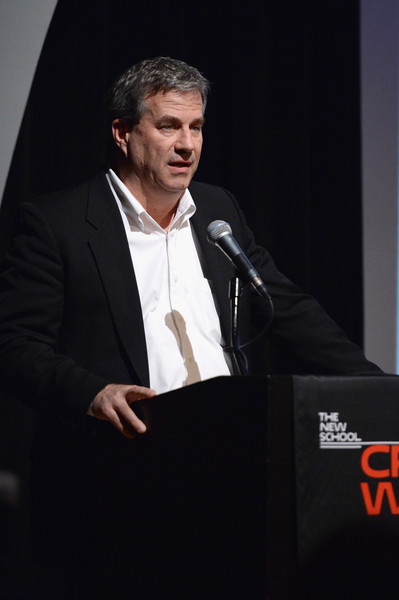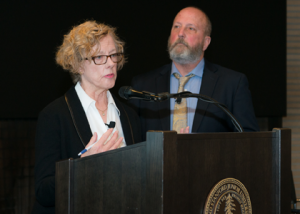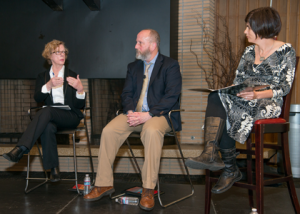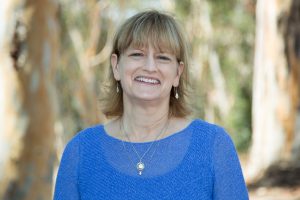Month: August 2016
Workshop on high-risk reporting held in Mexican border city of Nogales
Workshop on high-risk reporting held in Mexican border city of Nogales
 NOGALES, Mexico – This is a city of commerce, a bustling town leaning into the U.S.-Mexico border where billions of dollars of tomatoes and squash and peppers are shipped into the United States every year along with shiny Ford Fusions, computer electronics and parts for the aerospace industry.
NOGALES, Mexico – This is a city of commerce, a bustling town leaning into the U.S.-Mexico border where billions of dollars of tomatoes and squash and peppers are shipped into the United States every year along with shiny Ford Fusions, computer electronics and parts for the aerospace industry.
Underneath this sunbaked city, another kind of product is crossing into the United States. Through a spider web of tunnels bored into a vast drainage system that connects Nogales, Mexico, to Nogales, Arizona, billions of dollars of marijuana and other drugs are being shipped to the U.S. market.
InquireFirst Executive Director Lynne Walker traveled to Nogales, Mexico, to meet with journalists to discuss new techniques for investigative and high-risk reporting. During the March 15-16 workshop organized by the U.S. Consulate in Nogales and the U.S. Consulate in Tijuana, Walker spoke about tools and methods for finding and interviewing sources as well as organizing and writing investigative reports.
Walker also focused on cyber security, noting that investigative journalists are at risk because they actively use digital tools to contact sources and share information. She told Nogales journalists that they are particularly vulnerable to cyber threats when covering corruption, organized crime, human rights issues and abuses by authorities.
In addition to taking widely recommended measures such as using strong passwords and anti-virus software, Walker also suggested using secure email with encryption and tools that help users remain anonymous on the Internet.

The intensive workshop was designed to encourage a frank exchange with investigative journalists about the challenges they face as they probe sensitive subjects and present them to their audiences.
“The information you provided was invaluable,” said Lorenzo De la Fuente, director general of El Diario de Sonora.
In a separate session, Walker discussed safety protocols with investigative journalists. She told the Nogales journalists that the New York-based Committee to Protect Journalists has identified Mexico as one of the most dangerous countries outside a war zone for journalists.
As journalists report on dangerous subjects such as human trafficking and drug smuggling, Walker admonished them to follow protocols to ensure their safety. “No story is worth your life,” she said.
Walker also met with journalism students at the Nogales campus of the University of Sonora to discuss a code of ethics for reporting via social media.
Journalist security is the focus of symposium in Culiacán, México
 CULIACAN, México — Journalists are under siege in the northern Mexico state of Sinaloa, where notorious drug trafficker Joaquín “El Chapo” Guzmán Loera was captured in January after a fierce gun battle with soldiers.
CULIACAN, México — Journalists are under siege in the northern Mexico state of Sinaloa, where notorious drug trafficker Joaquín “El Chapo” Guzmán Loera was captured in January after a fierce gun battle with soldiers.
Grenades have been hurled at El Debate, Culiacán’s largest-circulation newspaper. Gunmen have opened fire with AK-47s on the reception desk of Mazatlán office of the daily newspaper Noroeste. Journalists have been questioned at gunpoint. Some have disappeared. Others have been found dead.
In Sinaloa, a state described by a former governor as the “birthplace of drug trafficking in México,” InquireFirst Executive Director Lynne Walker led a two-day symposium on investigative journalism and journalist safety.
Walker conducted the Spanish-language symposium Feb. 23-24 at the invitation of the U.S. Consulate in Hermosillo and the U.S. Consulate in Tijuana. It was the first investigative journalism workshop held in Culiacán for reporters and editors working in Sinaloa’s major cities. Read more…
Executive Director Lynne Walker leads journalism symposium in Guatemala
 GUATEMALA CITY — InquireFirst Executive Director Lynne Walker instructed a week-long series of journalism training symposiums in Guatemala in February — the first under our organization’s international journalism symposium program.
GUATEMALA CITY — InquireFirst Executive Director Lynne Walker instructed a week-long series of journalism training symposiums in Guatemala in February — the first under our organization’s international journalism symposium program.
Reporters, editors, media owners and university students in Quetzaltenango, Huehuetenango and Guatemala City attended the symposiums, which focused on new techniques for investigative journalism. The symposiums, held Feb. 7-13, were organized by the Public Affairs Section of the U.S. Embassy in Guatemala.
Almost 700 journalists, university students and professors attended the investigative journalism sessions, which were instructed by Walker in Spanish. Among the subjects discussed were developing an investigative news story, interviewing sources and organizing and writing investigative stories.
Iris Pérez, a journalist with LaRed.com who attended Walker’s symposium at Universidad Mariano Gálvez in Guatemala City, said, “After your presentation, my perspective about journalism has changed.” Read more…
John Oliver on how journalism works (or doesn’t)
The comic delivered a bracing diatribe on what’s wrong with American journalism. A lot, it turns out.
Facts Plus Heart
Usually we think of investigative journalism as reporting that exposes wrongdoing, maybe even puts someone in jail. But deep reporting—combined with deep thinking—sometimes leads to stories outside that box. A recent New York Times story about a Syrian refugee who is traveling throughout Germany, trying to put a human face on his fellow refugees by playing a donated piano, falls into that category. Yes, this is the tale of one man. But by also investigating the wide-ranging ramifications of Aeham Ahmad’s story, the Times’ Beirut bureau chief, Anne Barnard, illuminates the world’s growing refugee crisis, one most of us might prefer to ignore. – Susan White, Executive Editor, InquireFirst
John Oliver, Investigative Comic
Want to know what’s gone wrong with American journalism? John Oliver explains it all for you in his “Last Week Tonight” show on HBO. —Robert P. Laurence, InquireFirst.
Sam Quinones wins National Book Critics Circle Nonfiction Award for “Dreamland: The True Story of America’s Opiate Epidemic”
Sam Quinones wins National Book Critics Circle Nonfiction Award for “Dreamland:
The True Story of America’s Opiate Epidemic”

NEW YORK – Sam Quinones, a California-based journalist with deep reporting experience in Mexico, was awarded the National Book Critics Circle (NBCC) Award for Nonfiction during a March 17 ceremony at the New School in New York.
Quinones’s book, “Dreamland: The True Story of America’s Opiate Epidemic,” was described by NBCC judges as “masterful and sobering. ‘Dreamland’ is like a classic tragedy in which what we fervently wanted, an absence of pain, turned out in many cases more damaging than anyone could have imagined.”
The judges said, “Dreamland is a devastating dive into what may be America’s most extensive drug crisis. Quinones masterfully weaves together individual tales from all quarters of the epidemic. It all came together in what Quinones calls a catastrophic synergy in which over prescription formed a generation of addicts.”
In accepting the award, Quinones said his research “took me all over this country” before he finally set his story in “a Rust Belt town that had been beaten down…the town of Portsmouth, Ohio.”
Portsmouth has been devastated by addiction, as have hundreds of small rural towns and suburbs across America. But it is in Portsmouth that Quinones said he found hope.
“They are finding the wherewithal to build community,” he said. In other cities and towns across America, however, Quinones said he found “a story of isolation over community.”
Quinones, a contributing journalist with InquireFirst, credited his experience as a crime reporter in Stockton, Ca., with shaping him as a writer.
“That’s where I learned how to tell crime stories, how to cover murder, cover gangs, cover drug trafficking, and write my ass off for four years of the most withering crime rates anyone has ever experienced,” he said.
Quinones also spent 10 years reporting in Mexico, an experience he describes as “life changing.” Mexico was “where I could focus on characters, where I could focus on a changing country.”
Quinones, who lives in Los Angeles, is the author of two earlier books: “Antonio’s Gun and Delfino’s Dream” and “True Tales from Another Mexico.”
Executive Editor Susan White awarded 2015 Knight-Risser Prize for Western Environmental Journalism
Executive Editor Susan White awarded 2015 Knight-Risser Prize for Western Environmental Journalism

PALO ALTO, Ca. — InquireFirst Executive Editor Susan White and Center for Public Integrity Editor Jim Morris traveled to Stanford University in February to accept the 2015 Knight-Risser Prize for Western Environmental Journalism.
The 20-month project they jointly edited, “Big Oil, Bad Air: Fracking the Eagle Ford Shale of South Texas,” explored the tension between cheap energy and air quality in one of the most active oil and gas fields in the United States. White was executive editor of InsideClimate News, a nonprofit that focuses on climate and energy news, at the time.
White and Morris discussed the impact of their work at a February 17 Knight-Risser Symposium. Their team of reporters, which included Lisa Song and David Hasemyer, produced more than 40 stories focused on a largely rural area of Texas where thousands of wells and production facilities release tons of toxic chemicals into the air with virtually no regulatory oversight. The Weather Channel producer Greg Gilderman was also honored for his role in the project, which resulted in a 15-minute Weather Channel documentary.

White used the occasion to emphasize the need for an organization like InquireFirst, which will focus on only two or three topics a year and will stick with those topics until the problems it exposes are addressed, no matter how long that takes. Both InsideClimate and CPI have moved on to other projects, she said, although the air-quality problems in Texas have by no means been solved.
People like the rural Texans interviewed for “Big Oil, Bad Air,” “need unbiased, factual information if they are to have a voice in the public debates that are increasingly dominated by powerful business and political interests,” White said. “And I happen to believe that people like us…have a moral obligation to make sure they get it.”Read the article about the Knight-Risser panel discussion on environmental journalismView a photo gallery of the Knight-Risser Prize ceremony
InquireFirst Journalist Wins Prestigious Fellowship
InquireFirst Journalist Wins Prestigious Fellowship

NEW YORK — InquireFirst correspondent Elizabeth Douglass is among four veteran journalists who have won grants of up to $15,000 as recipients of McGraw Fellowships for Business Journalism.
Nearly 80 journalists working in more than a half-dozen countries applied for the fellowships. The winners were chosen following interviews and a thorough review of detailed proposals, work samples and references.
Douglass will use the grant to help fund her reporting on InquireFirst’s inaugural project, an in-depth examination of the nation’s deteriorating water infrastructure and water quality protections, with an emphasis on issues beyond those highlighted by the Flint, Mich., water disaster. Her first story will be released in January.
A previous finalist for the Gerald Loeb Award, Douglass’ stories have led to appearances on The Rachel Maddow Show, Public Radio International and Chicago public radio, as well as in a PBS documentary about turmoil in the defense industry. She is a former staff writer for The San Diego Union-Tribune, the Los Angeles Times and InsideClimateNews.
The McGraw Fellowships, an initiative of the Harold W. McGraw,Jr. Center for Business Journalism at the CUNY Graduate School of Journalism, were created in 2014 to support ambitious coverage of critical issues related to the U.S. economy and business. They are awarded twice a year to support journalists who need financial assistance to pursue a significant story or series that provides an in-depth look at an important business or economic issue. The program’s goal is to help journalists produce complex, time-consuming, and important journalism at a time when traditional media are struggling with small staffs and lean budgets.
Other Summer 2016 McGraw Fellows include Katherine Eban, a New York-based investigative reporter, who will use the fellowship to complete research for a book about the generic drug revolution, and freelance journalist Kristin Hussey and photojournalist Christopher Capozziello, who will examine the dangers and costs of the lucrative “gray market” for prescription drugs.
The McGraw Center for Business Journalism was established in early 2014 by the family of the late Harold W. McGraw, Jr., former chairman and CEO of McGraw-Hill and long-time publisher of BusinessWeek magazine. The Center is dedicated to enhancing the depth and quality of business news coverage through training, student scholarships and support for veteran journalists.
Elizabeth Douglass’s reporting on the nation’s deteriorating water infrastructure is
funded in part by

